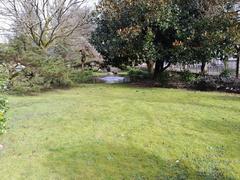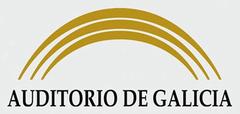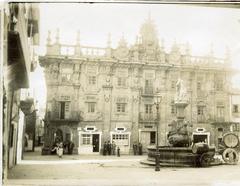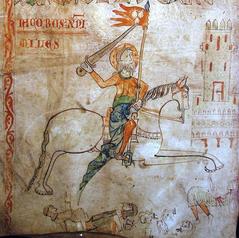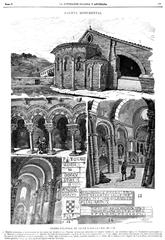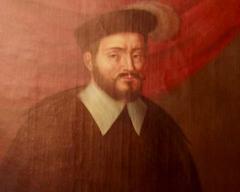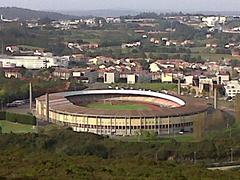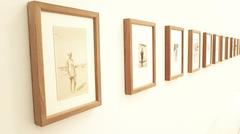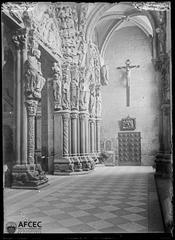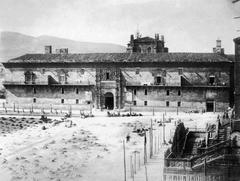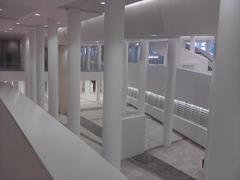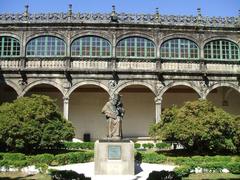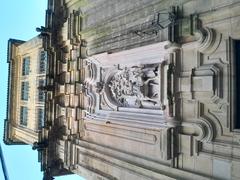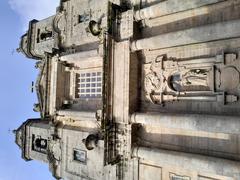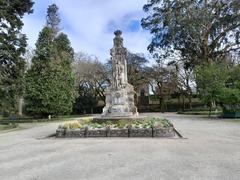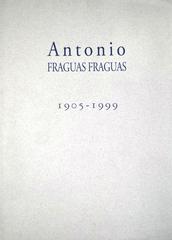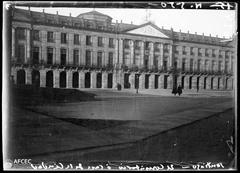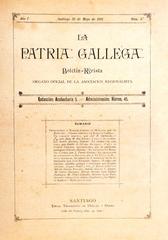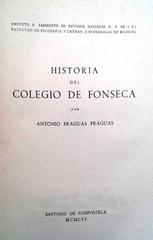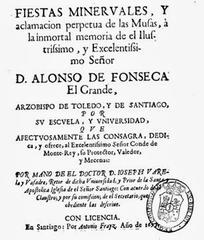Museo Pedagóxico de Galicia: Visiting Hours, Tickets, and Santiago de Compostela Historical Sites Guide
Date: 03/07/2025
Introduction
The Museo Pedagóxico de Galicia (MUPEGA), located in Santiago de Compostela, is a leading institution dedicated to the preservation and celebration of Galicia’s educational heritage. Since its establishment in 2004 by the Xunta de Galicia, MUPEGA has offered visitors a comprehensive exploration of educational development in the region, from the 19th century to the modern day. As the first publicly owned pedagogical museum in the Iberian Peninsula in the 21st century, MUPEGA stands at the intersection of cultural preservation, research, and community engagement (MUPEGA official site, SEPHE).
Nestled in the accessible San Lázaro district, MUPEGA’s modern building houses thoughtfully curated exhibitions, historical classrooms, archives, and interactive displays, all reflecting Galicia’s linguistic, cultural, and educational identity. Its proximity to other Santiago de Compostela historical sites, including the UNESCO-listed Cathedral and the Cidade da Cultura de Galicia, makes it a perfect addition to any cultural itinerary (Museos de Galicia). This guide outlines everything you need to know for your visit: opening hours, ticket information, accessibility, highlights, and tips to make the most of your experience.
Table of Contents
- Introduction
- History and Significance
- Collections and Exhibits
- Visiting Hours and Ticket Information
- Accessibility and Visitor Services
- Tips for Visitors
- Frequently Asked Questions
- Nearby Historical Sites
- Conclusion
- Sources
History and Significance
Origins and Development
MUPEGA was founded in 2004 to centralize, protect, and display Galicia’s educational artifacts and documents. Its foundation was inspired by a vision dating back to 1926, when an early educational museum was briefly established in A Coruña. The realization of MUPEGA in the 21st century marked a new era for the region’s educational and cultural preservation (SEPHE, ilovecompostela.com).
Cultural Impact
MUPEGA serves as a custodian of Galicia’s collective memory, documenting the evolution of education through significant historical phases such as the Spanish Civil War, Francoist Spain, and the democratic transition. Its extensive collection of over 50,000 items includes school furniture, didactic materials, rare textbooks, and photographs, offering an unparalleled perspective on Galician social and cultural change (Galician Government Education).
The museum is also a pioneer in the Iberian Peninsula, having influenced the development of similar institutions across Spain and Portugal. Through exhibitions, conferences, and research, MUPEGA has contributed to the professionalization of educational heritage management (SEPHE).
Collections and Exhibits
Permanent Exhibitions
MUPEGA’s exhibitions are arranged chronologically across three floors, each representing different eras and pedagogical philosophies. Key sections include:
- Historical Classrooms: Meticulously recreated classrooms from the 19th century through the 1980s, showcasing the evolution of teaching environments and educational norms (Museos de Galicia).
- Textbooks and Teaching Materials: Antique texts, exercise books, and teaching aids that illuminate changing curricula and pedagogical methods.
- Scientific Instruments and Technology: Early laboratory equipment, calculators, typewriters, and the pioneering Carta Geométrica de Galicia by Domingo Fontán, underscoring the interplay between science and education (GCiencia).
- Education, Gender, and Social Change: A gallery dedicated to the history of women’s education in Galicia, reflecting milestones and transformations in gender equality.
- Special Education and Inclusion: Displays focused on the history of special education, featuring tools and materials used to support diverse learners.
Temporary and Rotating Exhibitions
MUPEGA frequently hosts temporary exhibits, such as:
- “Homo sapiens, transmisor de conocimiento”: Tracing the evolution of knowledge transmission through scientific and artistic artifacts.
- “Castelao enseña”: Exploring the pedagogical legacy of Alfonso Daniel Rodríguez Castelao.
- “Santiago. Peregrinación, ciudad, escuela”: Linking pilgrimage, urban life, and education in Santiago de Compostela, especially during Holy Years (Museos de Galicia).
Interactive and Family-Friendly Features
- Hands-On Exhibits: Visitors of all ages can interact with vintage typewriters, abacuses, and classroom games.
- Historic Toys Collection: Includes unique items like a foosball table designed for children injured during the Spanish Civil War (GCiencia).
- Role-Play Opportunities: Sit at period desks and participate in mock lessons, fostering intergenerational dialogue.
Visiting Hours and Ticket Information
Opening Hours (as of June 2024)
- Monday to Friday: 9:00 AM – 2:00 PM and 4:00 PM – 7:00 PM
- Saturday: 10:00 AM – 2:00 PM
- Sunday and Public Holidays: Closed
Note: Hours may vary for holidays or special events. Always confirm current opening times on the official website.
Admission and Tickets
- Entry: Free for all visitors; no tickets required.
- Guided Tours: Available for groups of 10 or more; advance booking required. Tours last approximately 75 minutes and are offered in Galician, Spanish, and English (Museos de Galicia).
Accessibility and Visitor Services
- Wheelchair Access: Ramps, elevators, and adapted restrooms throughout the building.
- Parking: Dedicated spaces for visitors, including accessible spots.
- Facilities: Free cloakroom and lockers, accessible restrooms, seating areas, and an information desk.
- Support for Visitors with Disabilities: Assistance available upon request; accompaniment recommended for certain needs.
- Audio Guides and Tactile Exhibits: Available for visitors with visual or hearing impairments (Museos de Galicia).
Tips for Visitors
- Plan Ahead: Check the website for up-to-date hours, events, and booking details.
- Travel Light: Large bags and backpacks are not permitted in exhibition halls; use the lockers provided.
- Photography: Allowed in most areas, without flash or tripods; always observe posted restrictions.
- Respect the Rules: Food, drink, and pets (except guide dogs) are not permitted.
- Combine Attractions: MUPEGA is close to other Santiago de Compostela historical sites, making it easy to plan a cultural day out.
- Engage with Staff: The museum team is knowledgeable and happy to assist with information or special requests.
Frequently Asked Questions (FAQ)
Q: What are the current Museo Pedagóxico de Galicia visiting hours?
A: Monday to Friday, 9:00 AM – 2:00 PM and 4:00 PM – 7:00 PM; Saturday, 10:00 AM – 2:00 PM; closed Sundays and public holidays. Always check the official website for updates.
Q: Is there an admission fee or are tickets required?
A: Admission is free. Guided tours for groups require advance booking.
Q: Is the museum accessible for people with disabilities?
A: Yes, with ramps, elevators, adapted restrooms, and accessible parking.
Q: Are guided tours or educational workshops available?
A: Yes, for groups by prior arrangement; educational workshops are frequently offered.
Q: Can I bring food, drinks, or pets?
A: Food, drinks, and pets (except guide dogs) are not allowed.
Nearby Historical Sites
Enhance your visit by exploring nearby Santiago de Compostela highlights:
- Cathedral of Santiago de Compostela: Iconic pilgrimage site and UNESCO World Heritage monument.
- Historic Old Town: Winding medieval streets, vibrant squares, and traditional Galician architecture.
- Galician Center of Contemporary Art and Alameda Park: Cultural and green spaces within walking distance.
These attractions, combined with MUPEGA, provide a comprehensive immersion into Galician history and culture.
Conclusion
The Museo Pedagóxico de Galicia (MUPEGA) is more than a museum—it’s a dynamic cultural hub and educational resource that brings Galicia’s past to life. Its extensive collections, interactive exhibits, and commitment to accessibility make it an essential stop in Santiago de Compostela. With free admission, inclusive facilities, and proximity to other historical landmarks, MUPEGA is ideal for families, educators, tourists, and anyone curious about the evolution of education in Galicia.
For the latest information on exhibitions, events, and educational resources, follow MUPEGA on social media and consider using the Audiala app for interactive guides and cultural updates.
Sources and Further Reading
- MUPEGA Official Site (MUPEGA official site)
- SEPHE (SEPHE)
- Museos de Galicia Visiting Information (Museos de Galicia)
- Galician Government Education (Galician Government Education)
- La Voz de Galicia, MUPEGA Renovation News (La Voz de Galicia)
- GCiencia (GCiencia)
- ilovecompostela.com (ilovecompostela.com)
- Museumspedia (Museumspedia)
